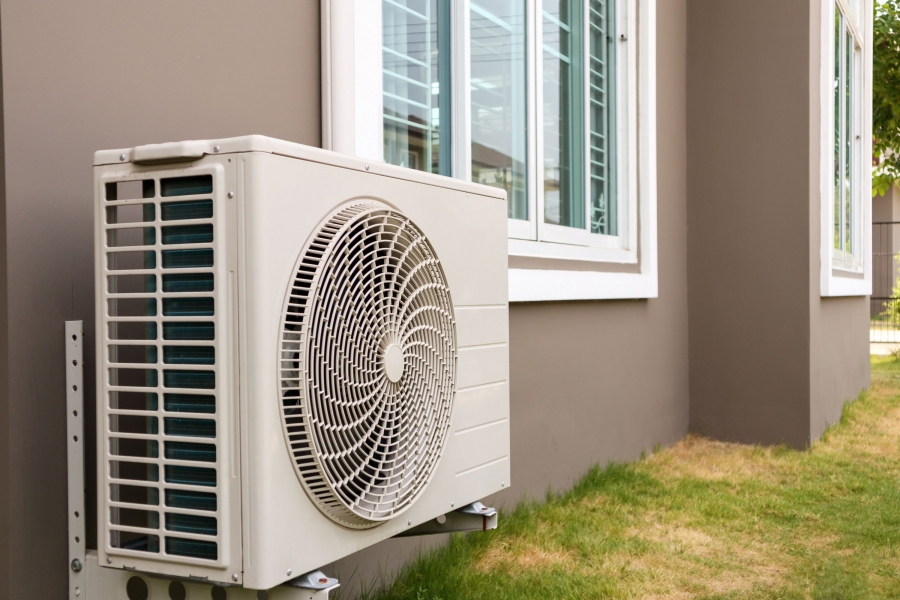A heating, ventilation, and air conditioning (HVAC) system controls your house’s heating and cooling. However, sometimes it feels like your HVAC system is not doing its job, and you’re just throwing away your money. The good news is that you can lower your energy expenditure while improving your HVAC system’s functionality.
Energy conservation is vital. You might, at one point, have even considered which is better, gas vs electric furnaces, especially when working with a tight budget. Here are eight tips to help you reduce energy costs with your HVAC system.
-
1. Conduct Routine Maintenance
Conducting routine maintenance is the best energy-saving tip for your HVAC system. Without regular maintenance, your HVAC won’t run as efficiently, thus raising your energy costs.
Consider having a proactive maintenance program and working with a qualified HVAC company. Hiring one to maintain your system will ensure it’s running on the most efficient settings and that all the components are in excellent condition.
-
2. Run The System At Optimum Temperature
For an HVAC system to be energy efficient, it has to run in the optimum temperature range. Take time to go through the owner’s manual to find the optimum temperature. Consider checking with a service technician to learn the most energy-efficient temperature for certain months, say winter.
As the HVAC system runs, avoid too many fluctuations in the temperature range. For instance, avoid turning it way down during hot days. It’s not a good idea to run your AC below 24 °C as it can make the HVAC less efficient and work harder, using more energy.
-
3. Utilize Automatic Controls
By automatically controlling the output, speed, and running time of your HVAC system, you get appropriate amounts of cooling and heating. So, you may want to run equipment such as chillers, fans, and compressor motors on automatic controls.
Utilizing automatic controls optimizes your HVAC system operation. You don’t need to manually adjust the pressure and temperature every time rooms are unoccupied. Your system automatically regulates the rooms’ temperature, offering comfortable conditions while reducing energy expenditure.
-
4. Always Change The Air Filter
Air filters are designed to collect pet fur, pollens, dust, and dirt and allow for the passage of clean air. And as time passes, the debris slows down the efficiency of your HVAC system. Check your air filters more often to enhance their functionality and improve longevity.
Consider changing the air filter in your HVAC once a month during summer and twice or three times during winter. To reduce your HVAC system’s energy cost, you should operate it as directed by the manufacturer. So, change your air filter according to the manufacturer’s instructions.
If you’re asthmatic, allergic, or own a pet, you may want to change your air filters after 20 to 45 days. This will reduce allergic reactions and asthma attacks while improving your HVAC system’s energy efficiency.
-
5. Clean The Vents
The cleanest air filter is no help if your ventilation is obstructed or dirty. Always keep your draperies, furniture, rugs, and bookshelves far from your vent. You should wipe and vacuum dust accumulating near the vents for air to flow through the duct with ease.
Use a toothbrush and a soapy damp rag to clean narrow slots. Dry your vent after cleaning it to prevent stagnant water. When you remove the duct for cleaning, always cover it and turn off the HVAC system, so the dust doesn’t blow in your direction. A clean vent can improve the system’s functionality, hence reducing energy expenditure.
-
6. Block Sunrays
The cooling and heating loads of your house are often affected by window covering. In the winter season, ensure your shades and draperies on the south-facing window are open throughout the day. This is vital as it allows sunlight into your home.
Once the sun sets, close your window for the chill to go down. And consider adding a layer of insulation to prevent the heat from escaping. During the day, your window cover should be closed to block the outside heat. Doing so will decrease your energy cost as your HVAC system won’t operate at its maximum setting.
-
7. Take Advantage of Fans
Use your fans to regulate the indoor temperature during summer and winter. Fans are designed to cool your skin, making your home feel less hot during summer.
During winter, you can switch your fans to run clockwise and push hot air from your heater to the floor. The fan makes it more energy efficient when running along with the HVAC system. You’ll be able to lower the thermostat setting by approximately 4% to 6%, saving your energy expenditure.
-
8. Watch Out For Your Other Electrical Appliances
Electrical appliances such as dryers and ovens tend to draw warm air into your home, creating additional heat. When using these appliances during summer or hot days, your home’s temperature will go up. As a result, your HVAC system will be forced to work harder to cool down your home.
By working harder, your HVAC will use more energy, forcing your energy cost to go up. Avoid using a dryer and oven when running your HVAC system to minimize energy expenditure.
Takeaway
Nowadays, having an energy-efficient HVAC system is crucial for your home. By adhering to the tips discussed in this article, you don’t have to invest in a new HVAC system to improve your home’s energy expenditure. These tips can help you save a significant amount of money in the long run. You won’t be filled with dread anymore whenever you get your electricity bills.







